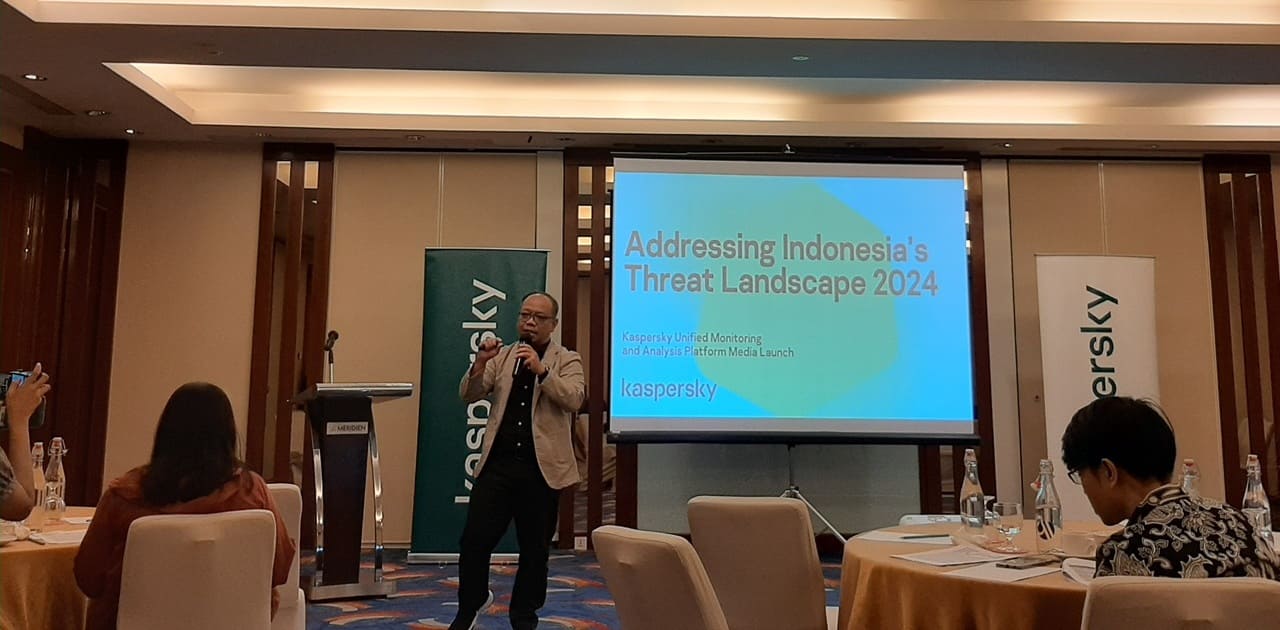Heaptalk, Jakarta — Kaspersky presented its latest product namely the Kaspersky Unified Monitoring and Analysis Platform (KUMA) in Indonesia (02/27). Developed for the B2B segment, this platform is expected to help businesses and organizations stay safe in cyberspace while embracing digitalization.
With the rapid movement of digitalization in Southeast Asia, Kaspersky estimates a landscape of cyber security threats that will target this region, including phishing, online fraud, data breaches, and financial service disruptions. In 2023, the cybersecurity company revealed that it had protected almost one in three users in Indonesia (31.4%) from online threats.
President Joko Widodo issued Presidential Regulation No. 47 of 2023 on National Cybersecurity Strategy and Cyber Crisis Management. The presidential regulation contains analysis and evaluation of cyber security policies as well as the formulation and provision of policy recommendations in the field of cybersecurity. Therefore, KUMA was launched to empower businesses and organizations to be one step ahead in facing today’s growing challenges and needs.
Detecting a vulnerability in iOS
According to the General Manager for Southeast Asia at Kaspersky Yeo Siang Tiong, when it comes to cybersecurity, even the most secure operating systems can be compromised as last year the company detected a vulnerability in iOS using KUMA. This is possible as advanced persistent threat (APT) actors are constantly developing their tactics and seeking new weaknesses to exploit. Therefore, Yeo urged the business sector to prioritize the security of their systems.
“This involves providing the latest tools for employees and technical teams to effectively recognize and defend against potential threats as well as timely remediation of incidents,” Yeo said at the KUMA platform launch in Jakarta (02/27).
As a security information and event management (SIEM) platform, KUMA offers several advantages, spanning high performance of 300k+ EPS per KUMA instance, low system requirements, scalability, unified web console interface, out-of-the-box, and low entry threshold.

Meanwhile, Territory Manager for Indonesia at Kaspersky Dony Koesmandarin delivered that cyber threat actors are increasingly using diverse tactics to launch sophisticated targeted attacks. Therefore, he emphasized the importance of using a system that can monitor network activities such as security information and incident management.
“With the launch of KUMA, we hope to empower technology experts to handle complex cyber security incidents with broader detection and response, to improve cybersecurity in Indonesia,” concluded Dony.











